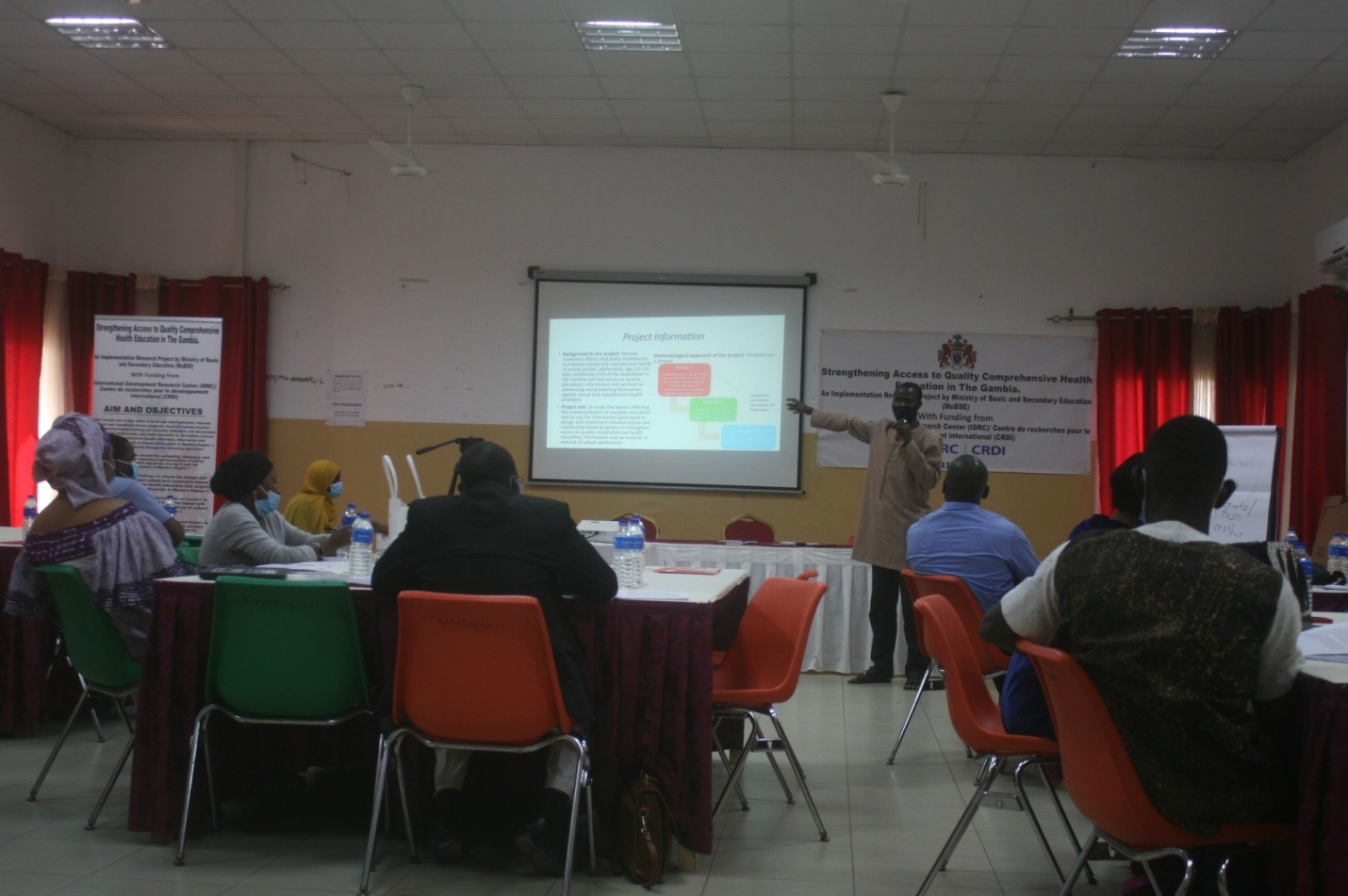By Yunus S Saliu
The Curriculum Research, Evaluation and Development Directorate (CREDD), a unit under Ministry of Basic and Secondary Education (MoBSE) Wednesday wrapped up its Strengthening Access to Quality Comprehensive Health Education in The Gambia dissemination forums.
Strengthening Access to Quality Comprehensive Health Education in The Gambia is an implementation research project conducted by Ministry of Basic and Secondary Education funded by International Development Research Center (IDRC), Canada.
The overall aim of the study was to look into the obstacles to implementation of comprehensive health education (CHE), while the generated information is used to design and implement relevant school and community-based programs to implement in Western Region 1, of Kanifing Municipality Council – which has a large population of children and adolescents.
The dissemination forums which kicked-start on 26th February through 17th March, 2021 was able to brought together on different segment religious leaders, National Assembly members, relevant ministries, members of PTAs, principals, teachers, CSOs, NGOs, PDAG, rep of SSWH, officials of MoBSE, MoHERST, MoH, researchers, community facilitators for out of school children, among other stakeholders for interactions, to look for solutions to the challenges and make recommendation for way forward for the implementation of the comprehensive health education (CHE) in the country.
Meanwhile, some key study findings including the adolescent sexual and reproductive health (ASRH) issues, challenges to implementing comprehensive health education for adolescents in and out-of-school as reported by staff of NGOs, civil society organizations and school authorities.
According to the principal investigator of the project for Strengthening Access to Quality Comprehensive Health Education for in-and-out of School Adolescents in Region I, Mrs Phebian Ina Grant-Sagnia, she noted that lack of coordination across various implementing agencies of sexual and reproductive health programs; funding gaps for sexual and reproductive health programs; policy restrictions and societal norms that perceived discussions on sexual and reproductive health issues as highly culturally sensitive were all reported as major obstacles to implementing programs on sexual and reproductive health education for out of school adolescents.
While she pointed out that inadequate teaching hours spend on sexual and reproductive health topics; limited stakeholder participation in curriculum development; inadequate adaption and monitoring and supervision of existing frameworks on comprehensive health education and limited teacher trainings on sexual and reproductive health issues were perceived as major challenges to implementing comprehensive health education for adolescents in school.
Among other things, Mrs Grant-Sagnia said the expected outcomes of the study will be the identification of challenges to implementation of comprehensive health education and changes in understanding, behavior and practices at the individual, institutional and community levels towards effective health education and information and access to health services for adolescents at the end of the project.





